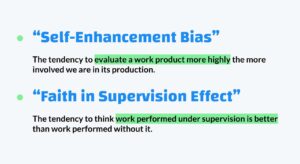Delegation is a vital skill that separates successful entrepreneurs from those who struggle to scale their businesses. It’s more than just passing off tasks to others—it’s about strategically leveraging your team’s strengths to drive growth, innovation, and efficiency. However, mastering the art of delegation requires a paradigm shift, a keen eye for the right processes, and a commitment to continuous improvement. In this comprehensive guide, we’ll delve into the seven principles of effective delegation that every entrepreneur should adopt to build a thriving, self-sustaining business.

Here are the 7 Principles of Effective Delegation for Entrepreneurs that we will go through in this post:
- Embrace the Power of Delegation: Understand its Strategic Value
- Shift Your Mindset: Redefine Your Approach to Delegation
- Identify the Right Tasks to Delegate: Focus on High-Impact Activities
- Choose the Right People: Delegate to Your Best and Brightest
- Communicate with Precision: Set Clear Expectations
- Let Go of Perfection: Trust the Process with the Black Box of Delegation
- Provide Constructive Feedback: Foster Growth and Continuous Improvement
1. Embrace the Power of Delegation: Understand its Strategic Value
Delegation is often misunderstood as merely offloading tasks you don’t want to do. However, when used effectively, delegation becomes a strategic tool that amplifies your business’s potential. It frees up your time to focus on the high-impact activities that only you, as the leader, can perform. These activities often include strategic planning, innovation, and relationship-building—areas where your unique insights and leadership are irreplaceable.
Delegation as a Growth Strategy
Consider delegation as a cornerstone of your growth strategy. When you delegate effectively, you’re not just increasing your productivity—you’re empowering your team to take ownership of their roles, thereby enhancing their skills and contributing to the overall growth of your business. This empowerment fosters a culture of responsibility and initiative, where team members feel valued and are more likely to go above and beyond in their roles.
For example, in my own business, I’ve found that delegation allows me to focus on scaling and innovation. By entrusting my team with operational tasks, I can devote my energy to exploring new business opportunities, building strategic partnerships, and driving the overall vision of the company. This not only increases my personal productivity but also accelerates the growth trajectory of the entire organization.

Building a Self-Sustaining Business
The ultimate goal of delegation is to build a business that can operate and thrive without your constant oversight. This is particularly important for entrepreneurs who aim to scale their businesses. If your business relies on you for every decision, it’s unlikely to grow beyond a certain point. Effective delegation ensures that your business processes continue to run smoothly, even in your absence, allowing you to focus on higher-level strategies and long-term goals.
Moreover, a self-sustaining business is more attractive to investors and potential buyers. When a business is not overly dependent on its founder, it demonstrates stability, scalability, and a well-structured organization—key factors that drive business valuation and investment appeal.
2. Shift Your Mindset: Redefine Your Approach to Delegation
The second principle of effective delegation involves a fundamental shift in mindset. Many entrepreneurs are accustomed to doing everything themselves, particularly in the early stages of their business. This “do-it-yourself” mentality can be a significant barrier to delegation. To delegate effectively, you must redefine your approach and embrace a new way of thinking about your role as a leader.
Letting Go of Control
One of the most challenging aspects of delegation is letting go of control. As entrepreneurs, we often believe that no one can do the job as well as we can. While this might be true in some cases, it’s important to recognize that this mindset is a major roadblock to growth. Delegation requires you to trust others to get the job done, even if they don’t do it exactly the way you would.
Shifting your mindset means accepting that tasks may not be completed in the exact manner you would prefer, but that doesn’t necessarily mean they are done incorrectly. The focus should be on the outcomes rather than the process. When you delegate, you’re not just passing off tasks—you’re entrusting your team with the responsibility to achieve specific results. By doing so, you empower them to take ownership, make decisions, and ultimately grow in their roles.

Moving from Operator to Leader
As you grow your business, your role as an entrepreneur must evolve from being an operator—someone who is involved in every detail of the business—to being a leader who sets the vision and empowers others to execute. This shift requires a deep understanding of your strengths and recognizing where your time is best spent. It also involves trusting your team to handle the operational aspects of the business while you focus on the bigger picture.
For instance, I used to be heavily involved in every aspect of my business, from client management to marketing strategies. Over time, I realized that my real value lies in setting the vision, building relationships, and exploring new opportunities. By shifting my mindset and delegating operational tasks to capable team members, I’ve been able to focus on leading my business to new heights.
3. Identify the Right Tasks to Delegate: Focus on High-Impact Activities
The third principle of effective delegation is identifying which tasks should be delegated and which should remain on your plate. Not all tasks are created equal, and delegating to executive assistant the wrong ones can lead to inefficiencies and missed opportunities.

Conducting a Time Audit
A practical way to start identifying the right tasks to delegate is by conducting a time audit. For one week, track everything you do and categorize each task based on its value and impact on your business. This exercise will give you a clear picture of where your time is going and help you identify tasks that are consuming your time without contributing significantly to your business’s growth.
Tasks can generally be categorized into four buckets:
- Low-Value Tasks: These include administrative work, data entry, scheduling, and other routine activities that do not require your expertise. These are prime candidates for delegation, as they are time-consuming and do not contribute directly to your business’s strategic goals.
- Routine Tasks: These are tasks that follow a set process and can be easily handed off to someone else. Examples include responding to routine customer inquiries, processing orders, or managing social media accounts. While these tasks are important for the day-to-day functioning of your business, they do not require your unique skills or insights.
- Specialized Tasks: These tasks require specific knowledge or skills, such as managing a marketing campaign, analyzing financial data, or developing a new product feature. If these tasks are not within your area of expertise, it may be more efficient to delegate them to someone who has the necessary skills.
- High-Impact Tasks: These are tasks that have a significant impact on your business’s growth and success. They often involve strategic decision-making, key negotiations, or activities that require your unique insights. These tasks should remain your focus, as they are where you can add the most value.
Leveraging Technology for Delegation
In today’s digital age, technology plays a crucial role in effective delegation. Tools like project management software, CRM systems, and automation platforms can help streamline tasks, making it easier to delegate and monitor progress. For example, using a project management tool like Asana or Trello allows you to assign tasks, set deadlines, and track progress without needing to micromanage.
Automation tools can also handle routine tasks, freeing up your team’s time for more high-value activities. For instance, automating email marketing campaigns or social media posts can reduce the workload on your marketing team, allowing them to focus on strategy and creative work.

4. Choose the Right People: Delegate to Your Best and Brightest
Delegation is only as effective as the people you delegate to. The fourth principle is all about selecting the right person for each task, ensuring that you’re leveraging your team’s strengths and potential to the fullest.
The Importance of Matching Tasks to Strengths
Effective delegation requires a deep understanding of your team members’ strengths, weaknesses, and areas of expertise. It’s not just about offloading tasks to whoever has the most time—it’s about matching the right task with the right person. This ensures that tasks are completed efficiently and to a high standard, while also allowing your team members to work in areas where they can excel.
Consider the Pareto Principle, which suggests that 20% of your team members will typically produce 80% of the results. These high performers are your go-to people for critical tasks. However, effective delegation also involves recognizing the potential in others and providing opportunities for growth. By delegating tasks that challenge team members and push them out of their comfort zones, you foster a culture of continuous learning and development.
John Moran: A Case Study in Effective Delegation
A personal example of this principle in action is my experience with John Moran, who started as an employee at my digital marketing agency. Initially, John struggled with routine tasks like filling out reports—something that most employers might see as a red flag. However, I recognized that John had a unique talent for understanding complex systems and a deep curiosity about digital marketing.
Instead of focusing on his weaknesses, I decided to delegate more complex tasks related to Google Ads—an area that was still relatively new at the time. John quickly immersed himself in the world of Google Ads, and over time, he not only mastered it but became one of the top experts in the field. Today, John charges $2,500 per hour for his expertise, and he’s a key reason behind the success of my agency.
This story illustrates the importance of seeing beyond immediate capabilities and recognizing potential. By delegating the right tasks to the right people, you can unlock hidden talents and drive exceptional results.
Developing Your Team Through Delegation
Delegation is also a powerful tool for developing your team. When you delegate tasks that are slightly beyond someone’s current capabilities, you provide them with an opportunity to learn, grow, and take on greater responsibilities. This not only builds their confidence but also prepares them for more significant roles within your organization.
For example, if you have a team member who excels at customer service, you might delegate a task that involves client management or sales. This allows them to develop new skills and gain experience in a different area of the business. Over time, they may become a valuable asset in a new capacity, contributing even more to your business’s success.
5. Communicate with Precision: Set Clear Expectations
Clear communication is the backbone of effective delegation. The fifth principle emphasizes the importance of setting expectations from the start, ensuring that both you and your team members are aligned on the goals, timelines, and desired outcomes of each delegated task.
Defining the Desired Outcome
When delegating a task to Executive Assistant, it’s essential to start by defining the desired outcome. What exactly do you want to achieve? This includes being specific about the results you expect, the quality standards, and any key metrics that will be used to measure success. The more detailed you are about the end goal, the more likely it is that your team will deliver the desired results.
For example, if you’re delegating the creation of a marketing campaign, you might specify that the campaign should target a specific audience, generate a certain number of leads, and align with your brand’s messaging. By clearly defining these expectations, you provide your team with a clear roadmap to follow.
Setting Timelines and Milestones
In addition to defining the desired outcome, it’s important to set clear timelines and milestones. This ensures that the task is completed on schedule and allows you to monitor progress along the way. Depending on the complexity of the task, you might break it down into smaller steps, each with its own deadline.
For instance, if you’re delegating a project that involves multiple stages, such as developing a new product, you might set milestones for each phase—research, development, testing, and launch. This not only keeps the project on track but also allows you to provide feedback at each stage, ensuring that the final product meets your expectations.
Agreeing on the Level of Autonomy
Another key aspect of effective communication is agreeing on the level of autonomy the person will have. Some tasks may require close supervision and regular check-ins, while others can be completed independently. It’s important to communicate how and when you’ll check in on progress and what level of decision-making authority the team member will have.
For example, if you’re delegating a task that involves creative work, such as designing a new website, you might give the designer a high level of autonomy to explore different ideas and concepts. However, you might also agree to review the design at key stages to ensure it aligns with your vision.
Clear communication not only sets your team up for success but also builds trust and accountability. When team members know exactly what’s expected of them and how they’ll be evaluated, they’re more likely to take ownership of their work and deliver high-quality results.

6. Let Go of Perfection: Trust the Process with the Black Box of Delegation
The sixth principle of effective delegation is perhaps the most challenging for many entrepreneurs: letting go of perfection. This principle encourages you to trust the process, even when it feels uncomfortable, and to embrace the concept of the Black Box of Delegation.
The Pitfall of Perfectionism
Perfectionism is a common trait among entrepreneurs, and while it can drive high standards, it can also be a significant barrier to effective delegation. When you’re constantly striving for perfection, it’s easy to fall into the trap of micromanagement—checking and rechecking your team’s work, providing overly detailed instructions, and stepping in to correct even minor mistakes.
This approach not only creates inefficiencies but also undermines your team’s confidence and autonomy. It sends the message that you don’t trust them to do their jobs, which can lead to disengagement and a lack of initiative.

The 80% Rule
A more effective approach is to aim for work that’s 80% as good as what you would do yourself. This 80% threshold is where you need to set your expectations, recognizing that your team’s work doesn’t need to be perfect to be effective. Over time, with experience and feedback, your team members may even surpass your expectations and deliver results that are better than what you could have achieved on your own.
This concept is supported by Ed Mylett’s advice, which I often refer to: “Work done 80% as well as you could do it is the goal.” By setting this as your standard, you free yourself from the need to control every detail and allow your team the space to learn, grow, and improve.
The Black Box of Delegation
The Black Box of Delegation is a concept that I’ve found invaluable in my own business. It involves giving your team the end goal and the resources they need, but not micromanaging the process. In other words, you provide the inputs and the desired outcome, but you leave the “how” up to them.
Imagine you’re a general commanding an army. You might say, “I want all the tanks across the river by Thursday,” without dictating how to do it. Whether they build a bridge, find a ford, or transport the tanks by helicopter is up to them. What matters is that the tanks are across the river by the deadline.
This approach encourages creativity, innovation, and ownership. It allows your team to explore different solutions and find the best way to achieve the desired outcome. It also frees you from the minutiae, allowing you to focus on the bigger picture.
In my business, I’ve used the Black Box of Delegation to great effect. For example, when I tasked Ivan, one of my top performers, with building a website and lead generation funnel for a new business venture, I didn’t provide detailed instructions on how to do it. I simply told him the end goal and gave him the resources he needed. Ivan took ownership of the project, and within a weekend, he delivered a fully functional website and lead funnel that generated significant business value.
By embracing the Black Box of Delegation, you can trust your team to find their path to success and recognize that sometimes their way might be better than yours. This not only leads to better results but also fosters a culture of innovation and continuous improvement.
7. Provide Constructive Feedback: Foster Growth and Continuous Improvement
The final principle of effective delegation is providing constructive feedback. Delegation is not a “set it and forget it” process—it requires ongoing communication, feedback, and adjustment to ensure that tasks are completed effectively and that your team continues to grow.
The Importance of Timely Feedback
Timely feedback is crucial for effective delegation. When a task is completed, take the time to review the work and provide feedback as soon as possible. This ensures that the feedback is relevant and actionable, allowing your team to make improvements while the task is still fresh in their minds.
Constructive feedback should be specific and balanced, highlighting both what was done well and what could be improved. For example, if a team member delivers a report that meets most of your expectations but falls short in one area, acknowledge the overall quality of the work and then provide specific guidance on how to improve the weaker area.
Recognizing and Celebrating Success
In addition to providing constructive criticism, it’s important to recognize and celebrate success. Positive reinforcement is a powerful motivator that encourages your team to continue performing at a high level. When someone does an exceptional job, take the time to acknowledge their efforts and celebrate their success. This not only boosts morale but also reinforces the behaviors and attitudes that lead to high performance.
Celebrating success can take many forms, from a simple “thank you” or shout-out in a team meeting to more formal recognition, such as bonuses or awards. The key is to make sure your team knows that their hard work is appreciated and that their contributions are making a difference.
Encouraging a Culture of Continuous Improvement
Feedback should not be a one-way street. Encourage your team to share their insights and suggestions for how processes can be improved. This collaborative approach fosters a culture of continuous improvement, where everyone is actively engaged in finding better ways to work and achieve results.
For example, after completing a major project, you might hold a debriefing session with your team to discuss what went well, what challenges were encountered, and how the process could be improved in the future. This not only provides valuable insights but also empowers your team to take ownership of their work and contribute to the ongoing success of the business.
Mentorship and Professional Development
Effective delegation also involves investing in your team’s growth through mentorship and professional development. By providing opportunities for learning and development, you help your team members build the skills they need to take on more complex tasks and responsibilities. This not only benefits them but also strengthens your business by creating a more skilled and capable workforce.
For instance, if a team member shows potential in a particular area, such as leadership or project management, you might offer them additional training or mentorship to help them develop those skills. Over time, they may take on a more significant role within the organization, contributing to its growth and success.
Conclusion
Mastering the art of delegation is essential for any entrepreneur who wants to scale their business and maximize their impact. By embracing these seven principles—understanding the power of delegation, shifting your mindset, identifying the right tasks, choosing the right people, communicating clearly, letting go of perfection, and providing constructive feedback—you can create a business that thrives on its own, freeing you to focus on what truly matters.
Remember, delegation is not just a business strategy—it’s a way to scale your impact and ensure that your business can grow and succeed without your constant oversight. As you implement these principles, you’ll find that your business becomes more efficient, your team becomes more capable, and your role as a leader becomes more strategic.
Ready to take your delegation skills to the next level? Book a discovery call with Pareto Talent today. Our Executive Assistants are trained to help entrepreneurs like you maximize their impact by taking on routine or time-consuming tasks. With Pareto Talent, you’ll have a team that understands your vision and helps you achieve it. Don’t wait—start delegating to Executive Assistant effectively and watch your business grow. Book your discovery call now!
 Kasim Aslam
Kasim Aslam